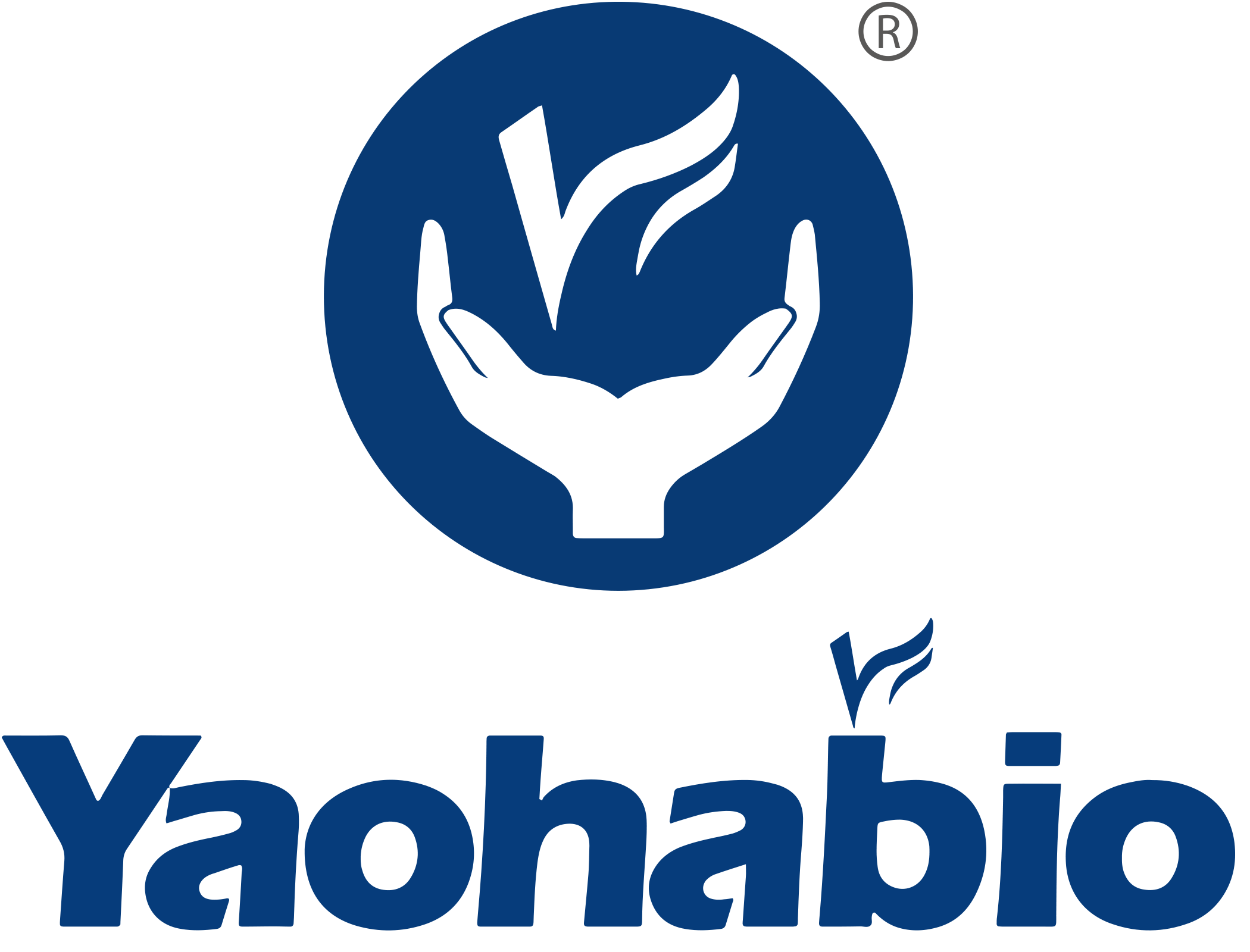In Vitro syntéza mRNA
Hlavními součástmi mRNA jsou 5’-kabinka, 5’-UTR, otevřená čtecí rámeček (ORF), 3’-UTR a 5’ poly A ocas, které jsou nezbytné pro udržení funkce mRNA. Výzkumníci použili řadu metod k identifikaci a optimalizaci sekvencí a struktur mRNA.
Syntéza mRNA se provádí na základě in vitro transkriptace (IVT) pomocí lineárních DNA šablon, RNA polymeráz (T3, T7 nebo SP6), nestandardních nebo modifikovaných nukleotidů, enzymů a vhodných reagentů.
modifikace 5’ kabinky
Posloupnosti dospělého mRNA z eukaryotické buňky ukazují 7-methylguanosinový (m7G) klobouček na 5' konci, který zvyšuje stabilitu mRNA a efektivitu překladu. Existují dvě obecné metody pro izolaci mRNA in vitro. Za prvé lze mRNA zakončit kapem in vitro transkripcí, pokud se do systému IVT přidá kapový analog struktury m7GpppG (např., CleanCap). Tato ko-transkripční metoda zakončení poskytuje přirozenou 5' kapovou strukturu a zvýší účinnost zakončení téměř na 90-99 %. Za druhé, mapování mRNA lze také provést pomocí enzymatických reakcí po in vitro transkripci.
PolyA Modifikace
Poly(A) ocas také prodlužuje poloviční životnost mRNA v vivo a zvyšuje efektivitu překladu mRNA. Délka amplifikovaného poly(A) ocasu by měla být 100-300 nukleotidů. Navíc modifikované adenosinové zvýší stabilitu poly A ocasu proti degradaci buněčnou RNase. Poly A ocas lze vložit pomocí in vitro transkripcí pomocí DNA šablony kódující poly A, čímž vznikne specifická délka poly A sekvence. Může se také použít rekombinantní poly A polymerasa enzymatickou polyadenylací po transkripci mRNA.
Modifikace nukleotidů
Modifikované nukleosidy mohou inhibovat rozpoznávání a/nebo aktivaci receptorů pro rozpoznávání vzorů (PRR) a zvyšovat efektivitu mRNA vakcín dvěma úplně odlišnými způsoby. Přidání určitých chemicky modifikovaných nukleosidů, včetně pseudouracilu (ψ), 1-methylpseudouracilu (m1ψ), thiouracilu (s4U) a 5-methylcytosinu (m5C), může zabránit aktivaci TLR7/8 a dalších receptorů innate imunity, což významně snižuje imunogennost mRNA.
systém dodávky mRNA
Pro udržení funkce mRNA je nutné, aby pronikla do cytoplazmy hostitele a vyjadřovala specifické antigény. Jednou z nejtěžších výzev při vývoji mRNA vakcín a léčeb je dodání mRNA do cílových buněk s dostatečně vysokou úrovní překladu, což vyžaduje velmi specifické a efektivní systémy dodávky mRNA. Byly vyvinuty a použity různé vektory pro dodávku mRNA, včetně dendritických buněk (DCs), protaminu, kationtých polymerů a kationtých liposomů.
Komplexy kationtích lipidů s mRNA a dalšími přípravky mohou společně tvořit nanoparticle o velikosti 80-200 nm, které se nazývají lipidní nanoparticle (LNP). Jako jedna z nejmodernějších systémů pro dodávku mRNA zahrnuje LNP ionizovatelné kationtice lipidy, přirozené fosfolipidy, cholesterol a polyethylenglykol (PEG). Několik RNA vakcín a terapií (siRNA a mRNA), které byly schváleny Americkou úřadem FDA, je založeno na systémech dodávky LNP.
Yaohai Bio-Pharma Nabízí Kompletní Řešení pro RNA
|
Katalogové RNA produkty
- Katalogové mRNA produkty
- Katalogové saRNA produkty
- Katalog circRNA produktů
|
Vlastní syntéza RNA
- Vlastní syntéza mRNA
- Vlastní syntéza saRNA
- Vlastní syntéza circRNA
|
služby CDMO mRNA
- Vývoj procesu
- Výroba podle GMP
- Asceptické vyplňování a dokončování
- Analýza a testování
|
Vlastní Dodávky
|
Třída
|
Dodávané výsledky
|
Specifikace
|
Aplikace
|
|
ne-GMP
|
Látka pro léčivo, mRNA
|
0,1~10 mg (mRNA)
|
Předklinická výzkumná činnost, jako je transfekce buněk, Vývoj analytických metod, Předběžná studie stability, Vývoj formulace
|
|
Léčivový produkt, LNP-mRNA
|
|
GMP, Sterilita
|
Látka pro léčivo, mRNA
|
10 mg~70 g
|
Žádost o registraci nového léku (IND), Uznání klinického výzkumu (CTA), Zásobníky pro klinické výzkumy, Aplikace na licenci biologického léku (BLA), Komerční zásobování
|
|
Léčivový produkt, LNP-mRNA
|
5000 ampulek nebo přednaplněných šroubovacích tub
|

 EN
EN
 AR
AR
 HR
HR
 CS
CS
 DA
DA
 NL
NL
 FI
FI
 FR
FR
 DE
DE
 EL
EL
 IT
IT
 JA
JA
 KO
KO
 NO
NO
 PL
PL
 PT
PT
 RO
RO
 RU
RU
 ES
ES
 SV
SV
 IW
IW
 ID
ID
 LV
LV
 LT
LT
 SR
SR
 SK
SK
 SL
SL
 UK
UK
 VI
VI
 ET
ET
 HU
HU
 TH
TH
 TR
TR
 FA
FA
 AF
AF
 MS
MS
 BE
BE
 MK
MK
 UR
UR
 BN
BN

